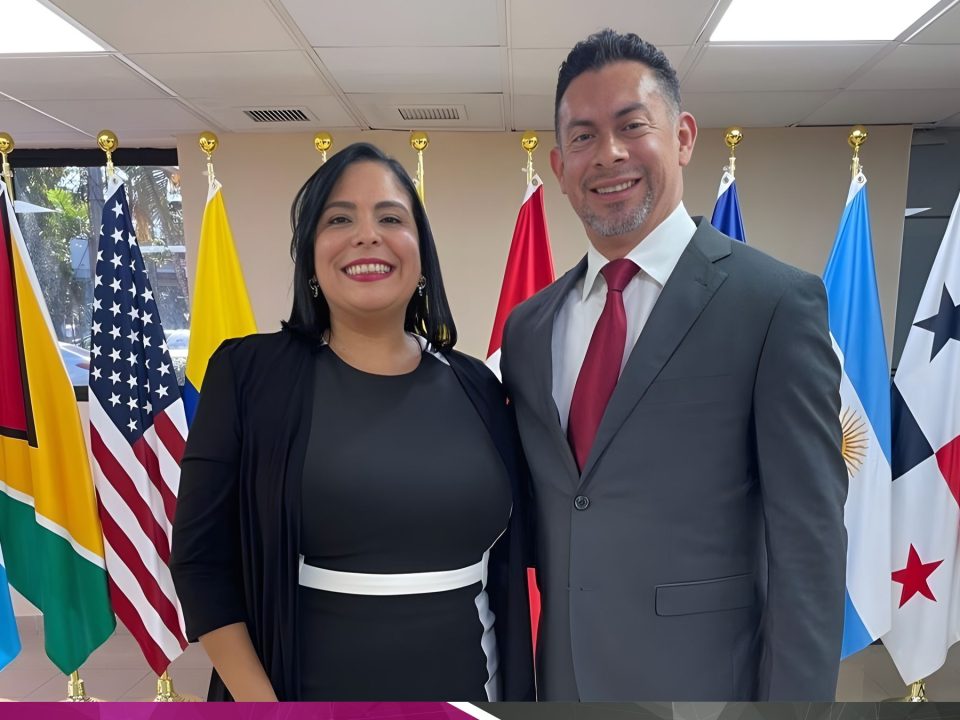Personal Data Protection Law in Panama
28/01/2021
Liz Carolina Barahona appointed new Chairwoman of the BVI Association of Registered Agents
10/02/2021[vc_row][vc_column][vc_column_text]
In September 2019, the Republic of Panama approved Law 93 (“Law 93”) through which Public-Private Partnerships (“PPP”) are regulated. Recently, in December 2020, Executive Decree No. 840 was approved, through which Law 93 (“DE 840”) is implemented.
Concept
PPP are a long-term public contractual modality (up to 30 years, renewable for up to 10 more years and up to 5 years if delays attributable to the Contracting Public Entity occur) (“PPP Contract”), whereby the Central Government, one or more autonomous and semi-autonomous entities of the Non-Financial Public Sector, municipalities or companies in which the State owns at least 51% (“Contracting Public Entity”), after a public bidding process, it may agree with private sector entities (“PPP Contractor”) the use of its knowledge, experience, equipment, technologies and financial capacity, as well as the sharing of risks and resources, for the design, construction, expansion, financing, exploitation, operation, maintenance, administration and/or supply of infrastructure, associated equipment or public services (“PPP Project”), included in the Five-Year Investment Plan or listed from time to time by the Cabinet Council, the amount of which may not be less than B/.15 million, except in the case of municipalities.
Modalities or Classes
PPPs may be Self-financed (if the costs are recovered by the PPP Contractor with the income received from the PPP Project) or Co-financed (if the PPP Project requires financial resources from the State so that it entails Firm or Contingent Commitments from the Contracting Public Entity).
The transfer of assets other than money or credits, the expenses and costs of acquisition or appropriation, payments made by users to the PPP Contractor are not considered State Financial Resources.
State Banks (i.e. BNP, Caja de Ahorros, and BDA) may only finance up to 15% of the PPP Project.
In Co-financed PPPs, the resources must be administered through a specific purpose trust in Panama, which must be created prior to the signing of the PPP Contract, with a duration equal to that of the PPP Contract and its renewals plus 1 additional year, in which the Contracting Public Entity may be a Settlor and/or Beneficiary, and the Trustee must (i) have a trust license granted by the SBP, (ii) be approved by the Regulatory Entity, through the PPP National Secretariat, and (iii) have a minimum experience of 5 years in infrastructure projects with a value of no less than B/. 15 million.
Projects included and excluded
Executive Decree 840 authorizes the use of PPPs for the development of transportation, logistics, energy, communications, irrigation, urban infrastructure, public buildings, social housing, infrastructure for recreational services, garbage collection and/or treatment, agricultural development, and administration and management of state-owned assets.
Government institutions such as IDAAN, ACP, CSS, BNP, Caja de Ahorros, ISA, SMV, SBP, public security services, medical health, public education, and extraction of metallic minerals are expressly excluded. Nevertheless, Executive Decree 840 provides that the provision of infrastructure and equipment, as well as the replacement, upkeep, and maintenance in such areas, may be subject to PPPs.
The Contracting Public Entity interested in developing a PPP Project must submit to the Regulatory Entity (made up of 5 State ministers and the Comptroller General), through the PPP National Secretariat, which shall be at the Ministry of the Presidency, for the approval of its application, the Technical Report, the Risk Allocation Matrix, Financial Scheme, Fiscal Impact, Financial Guarantees, the bidding list of charges and the draft PPP Contract.
The PPP National Secretariat must create a PPP Register in which the following must be viewed: all PPP Projects approved by the Regulatory Entity, the Technical Reports, the Bidding List of Charges for public bids, the members of the Assessment Commissions, the arbitration awards issued, the charters of incorporation of the SPVs which are PPP Contractors, the specific purpose trust contracts, the resolutions of the Contracting Public Entity establishing the rates and charges.
PPP Contractor Selection Process
Once a PPP Project has been approved by the Regulatory Entity, the Contracting Public Entity shall carry out its public bidding process for the selection of the PPP Contractor.
Both nationals and foreigners who have the legal capacity to contract with the State may participate in public bids, provided that they are not disqualified, that they comply with the principle of integrity (i.e. have not incurred in acts of corruption), and that they comply with that which is set forth in the corresponding bidding list of charges and the applicable legal provisions. The following are disqualified from participating in public bids for PPP Projects: (i) those who are in arrears in the payment of fines for breach of contracts with the State, (ii) those who participated in any way in the contractor selection process, (iii) those convicted in Panama, by means of final and binding judgment, to be disqualified to perform public offices or to contract with the State, (iv) those declared in a state of liquidation, (v) those who have incurred in falsehood in relation to the required information, (vi) those who are not legally organized, (vii) those who have had a contract administratively terminated for tortious or fraudulent breach of contract, (viii) natural persons who have been convicted in Panama by means of final and binding judgment, in the past 10 years, for crimes against the public administration, money laundering, against the economic order, against the public safety, against the economic patrimony and against the public faith, with sentences of 1 year or more.
Calls for public bidding shall be made through the electronic portal of the Regulatory Entity no less than 30 working days in advance. The information regarding the reference value and the technical assessment criteria shall be made public. The Bid Bond shall be established by the Contracting Public Entity together with the General Comptroller’s Office and shall not be determined according to the value of the economic offer; in any case, the amount shall appear in the respective bidding list of charges.
There may be instances prior to the bidding process itself, such as requests for expression of interest, pre-qualification processes, and access to data rooms.
In any case, on the day, time, and place set forth in the Bidding List of Charges, the bidders must submit their Proposals (which must contain their technical and economic proposal and the bid bond). Only those proposals which are not accompanied by the bid bond or which have submitted a bid bond for less than the required amount or validity shall be rejected outright. The remaining documents may be corrected within a period of 5 working days. The Technical and Economic Proposals (with the exception of the envelope containing the proposal on the variable of award offered) shall be opened and listed in Minutes, in order of presentation and with an indication of the values proposed. The assessment process shall comprise two stages: (i) one for compliance assessment of technical requirements; and (ii) another for assessment of economic proposals. The Technical Proposals, which have not been disqualified for not submitting all the requested information, shall be assessed on a compliant/non-compliant basis. The Economic Proposals, which have not been disqualified for not complying with the terms and conditions of the Bidding List of Charges, shall be assessed independently from the Technical Proposal, according to the objective criteria established in the Bidding Document (e.g., higher revenue for the Contracting Public Entity, shorter term for the PPP Contract, lower payment by the Contracting Public Entity), in both cases by majority decision of an Evaluation Committee formed prior to the receipt of proposals, by no less than 3 members who shall be professionals of recognized experience, who may be advised by other experts. The Evaluation Committee shall have 30 working days to submit its assessment report to the Contracting Public Entity. Correctable errors may be remedied within 5 working days. The Proposals may be rejected as onerous or risky if they exceed a percentage of the reference value established in the Bidding List of Charges. The Assessment Report shall be published in the electronic portal of the Regulatory Entity and the participants shall have 10 working days to make remarks, after which and within a period not exceeding 10 working days, the Contracting Public Entity shall proceed to make the award by means of a grounded resolution.
The Contracting Public Entity shall award the PPP Contract by means of a grounded resolution. In case of disqualification or if a proposal is deemed risky or onerous, the award may be made to the bidder with the next highest score. In the event that no bidder remains, the bidding process shall be declared vacant.
Those who consider themselves affected by the decisions may file the remedies provided for in the Public Procurement Law.
PPP Contracts, amendments, and termination
The PPP Contracts shall contain, without prejudice to the clauses that the parties may wish to include, the following:
- Rights and obligations of the parties.
- Risk allocation of the PPP Project.
- Obligations assumed by the PPP Contractor in terms of infrastructure, equipment, and/or services.
- Quality standards.
- Advancement clause which allows the incorporation of new technologies.
- Terms of payment of remuneration to the PPP Contractor.
- Contingent Commitments, if any.
- Contributions of the PPP Contractor to the Contracting Public Entity.
- Contractual amendments procedure.
- Conditions of a unilateral amendment or administrative redemption by the Contracting Public Entity.
- Liquidation regime in case of early termination.
- Requirements, information, and inspection of the PPP Project.
- Compliance control mechanisms and applicable penalties.
- Grounds for noncompliance and remedy periods.
- Validity period.
- Dispute resolution mechanism (e.g. direct negotiation, technical panel, arbitration).
The PPP Contract may also establish penalties for non-compliance, which could range from a written warning, monetary fines, up to termination of the contract, depending on the severity of the offense.
Since it is a public contract, it requires the countersignature of the General Comptroller’s Office and publication in the Official Gazette. In order to sign the PPP Contract, the PPP Contractor is required to provide the corresponding Performance Bond.
PPP Contracts may be amended by the Contracting Public Entity, prior consultation with the PPP National Secretariat and approval of the Regulatory Entity, for reasons of public interest, in which case the PPP Contractor must be financially compensated, either through payments by the Contracting Public Entity, payment by third parties, adjustment of the PPP Contract period, modification of tariffs or modification of the present value of the PPP Contract revenues. Amendments may also be made at the request of the PPP Contractor, at any time before ¾ of the duration of the PPP Contract has been fulfilled and provided that the Risk Allocation Matrix is not altered. In any case, the amendments may not require new investments in excess of 20%, nor may they in the aggregate exceed 40% of the estimated value of the investment. Any addendum to the PPP Contract must be assessed by the PPP National Secretariat, approved by the Regulatory Entity, countersigned by the General Comptroller’s Office, and published on the Regulatory Entity’s electronic portal.
PPP Contracts shall be terminated, prior declaration of the Contracting Public Entity by means of a grounded resolution, with the authorization of the Regulatory Entity, due to (i) force majeure or acts of God which permanently prevent its execution, (ii) expiration of the agreed term, (iii) mutual agreement, (iv) Gross Breach, (v) administrative redemption, (vi) any other provided for by law or in the PPP Contract. PPP Contractors whose PPP Contract is terminated for any Breach may not bid again for a PPP Project for a period of 10 years.
The following may not be subject to alternative dispute resolution methods: (i) non-contractual matters, (ii) administrative resolutions issued in relation to the PPP Contractor, (iii) those provided for in the PPP Contract.
Conditions Precedent to the execution of the PPP Contract
In order for the PPP Contractor to enter into the PPP Contract, which was awarded to it, it must have complied with the following minimum conditions: (i) to have constituted the SPV, (ii) to have constituted the trust, in case of Co-financed PPP, (iii) to have constituted the Performance Bond, (iv) to submit the templates of the required policy contracts, (v) to submit the affidavits and other documents required in the bidding list of charges.
PPP Contracting Party
The PPP Contract must be executed with a special purpose vehicle (“SPV”) incorporated under Panamanian law. The corporate purpose of this corporation must be limited to the activities foreseen in the PPP Contract, including related or ancillary activities; its validity must exceed the validity of the PPP Contract by 3 years and its corporate domicile must be in Panama. Modifications to the charter of incorporation require the authorization of the Contracting Public Entity.
The minimum capital required in the Bidding List of Charges must be paid at the time of its incorporation and maintained during the entire validity of the PPP Contract. At least 51% of such capital must be contributed by the successful bidder. In case there are other contributors (shareholders), the SPV must have two types of shares: (i) Controlling Shares Package (PAC), and (ii) Free Disposal Shares Package (PALD).
Restriction on Change of Control and Assignment of Rights under the PPP Contract
The transfer of PAC shares of the SPV, as well as the assignment of the rights of the PPP Contract shall require the prior approval of the Contracting Public Entity, the authorization of the Regulatory Entity, and, if any, of the pledgee. The PALD shares are freely transferable, provided that the Contracting Public Entity verifies that the new shareholders comply with the conditions set forth in the Bidding List of Charges.
Limitations on Ownership and Special Pledge of the assets and rights of the PPP Contracting Party
The assets and rights acquired by the SPV PPP Contractor for the purposes of the PPP Project may not be disposed of, mortgaged, or encumbered without the prior consent of the Contracting Public Entity, except to be transferred to a trust in the case of a Cofinanced PPP; and in any case, such assets and rights shall become public property upon termination of the PPP Contract.
The rights derived from the PPP Contract, including the revenues to be received by the PPP Contractor, may be subject to a Special Pledge (non-possessory), with the prior express authorization of the Contracting Public Entity, and the Regulatory Entity must approve the transfer to the pledgee or a qualified operator. The constitution of the Special Pledge shall prevent the PPP Contractor from assigning the PPP Contract, assigning the PAC Shares, making amendments to the PPP Contract, and/or early termination of the PPP Contract. The foreclosure of the Special Pledge shall entail the substitution of the PPP Contractor or the transfer of the PAC and the PALD shares, this last only if they were pledged.
Suspension of the PPP Contract for reasons of Force Majeure and Acts of God
The regulation establishes more detailed definitions than those offered by the Civil legislation as to what constitutes Acts of God and Force Majeure and allows in such cases to suspend the effects of the PPP Contract, prior declaration of the Contracting Public Entity with the opinion of the PPP National Secretariat.
Grounds for Termination of the PPP Contract
The regulations distinguish between causes attributable to the PPP Contractor (e.g. gross breach of obligations, insolvency, liquidation), grounds attributable to the Contracting Public Entity (e.g. gross breach, administrative redemption), and non-attributable grounds (e.g. expiration of the term, mutual agreement, impossibility of execution). The distinction between the grounds for termination is relevant for the purpose of establishing whether or not there are applicable economic effects (e.g. indemnities).
The PPP Contractor’s liability, in relation to the assets and rights transferred to the Contracting Public Entity upon termination of the PPP Contract, is extended to 1 year in relation to real property and 6 months in relation to personal property.
Administrative Intervention
PPP Contractors are subject to intervention by the Contracting Public Entity, with the prior authorization of the Regulatory Entity, in cases of Gross Breaches (as detailed in the PPP Contract, or in the Bidding List of Charges), after the expiration of the remedying periods and provided that the creditors have not opted to exercise the right of substitution and termination of the PPP Contract. Gross Breaches are defined as (i) gross and unjustified interruption in the provision of the service or abandonment of the works, (ii) gross breach by the PPP Contractor.
The appointed Receiver (who must be an economist, financier, accountant, engineer or other similar, with more than 10 years of experience), shall temporarily displace all the management bodies of the PPP Contractor, shall report to the Contracting Public Entity within 90 calendar days of his appointment, and in any case, the intervention shall last up to the maximum foreseen in the PPP Contract. Once the intervention has been completed, the Receiver may return the management and operation to the PPP Contractor, hand them over to a new contractor, or continue with the management and operation of the PPP Project.
Queries
For any additional questions please contact our Government Affairs Department attorneys:
[/vc_column_text][/vc_column][/vc_row][vc_row][vc_column width=”1/2″][vc_single_image image=”6423″ onclick=”custom_link” img_link_target=”_blank” link=”https://icazalaw.com/team/gabriel-gonzalez-ruiz-a/”][wgl_spacing spacer_size=”15px”][vc_column_text]Gabriel González-Ruiz[/vc_column_text][vc_column_text]gabrielg@icazalaw.com[/vc_column_text][wgl_spacing spacer_size=”30px”][/vc_column][vc_column width=”1/2″][vc_single_image image=”6425″ onclick=”custom_link” img_link_target=”_blank” link=”https://icazalaw.com/team/luis-a-chalhoub-m/”][wgl_spacing spacer_size=”15px”][vc_column_text]Luis Chalhoub[/vc_column_text][vc_column_text]luisch@icazalaw.com[/vc_column_text][wgl_spacing spacer_size=”30px”][/vc_column][/vc_row][vc_row][vc_column width=”1/2″][vc_single_image image=”6427″ onclick=”custom_link” img_link_target=”_blank” link=”https://icazalaw.com/team/alfredo-r-fonseca-zauner/”][wgl_spacing spacer_size=”15px”][vc_column_text]Alfredo Fonseca[/vc_column_text][vc_column_text]alfredof@icazalaw.com[/vc_column_text][wgl_spacing spacer_size=”30px”][/vc_column][vc_column width=”1/2″][vc_single_image image=”6432″ onclick=”custom_link” img_link_target=”_blank” link=”https://icazalaw.com/team/adolfo-a-gonzalez-ruiz-arias/”][wgl_spacing spacer_size=”15px”][vc_column_text]Adolfo González-Ruiz[/vc_column_text][vc_column_text]adolfog@icazalaw.com[/vc_column_text][wgl_spacing spacer_size=”30px”][/vc_column][/vc_row][vc_row][vc_column][wgl_spacing spacer_size=”50px”][wgl_double_headings title_color=”#151515″ subtitle_color=”#901656″ subtitle=”Download Executive Decree 840 – December, 31st 2020 (In Spanish)”][vc_icon icon_fontawesome=”far fa-file-pdf” color=”custom” custom_color=”#8d0e57″ link=”url:https://icazalaw.com/wp-content/uploads/2021/01/Reglamentacion-APP.pdf|title:Executive%20Decree%20840%20-%20December%2031st%2C%202020|target:_blank”][wgl_spacing spacer_size=”30px”][/vc_column][/vc_row]








